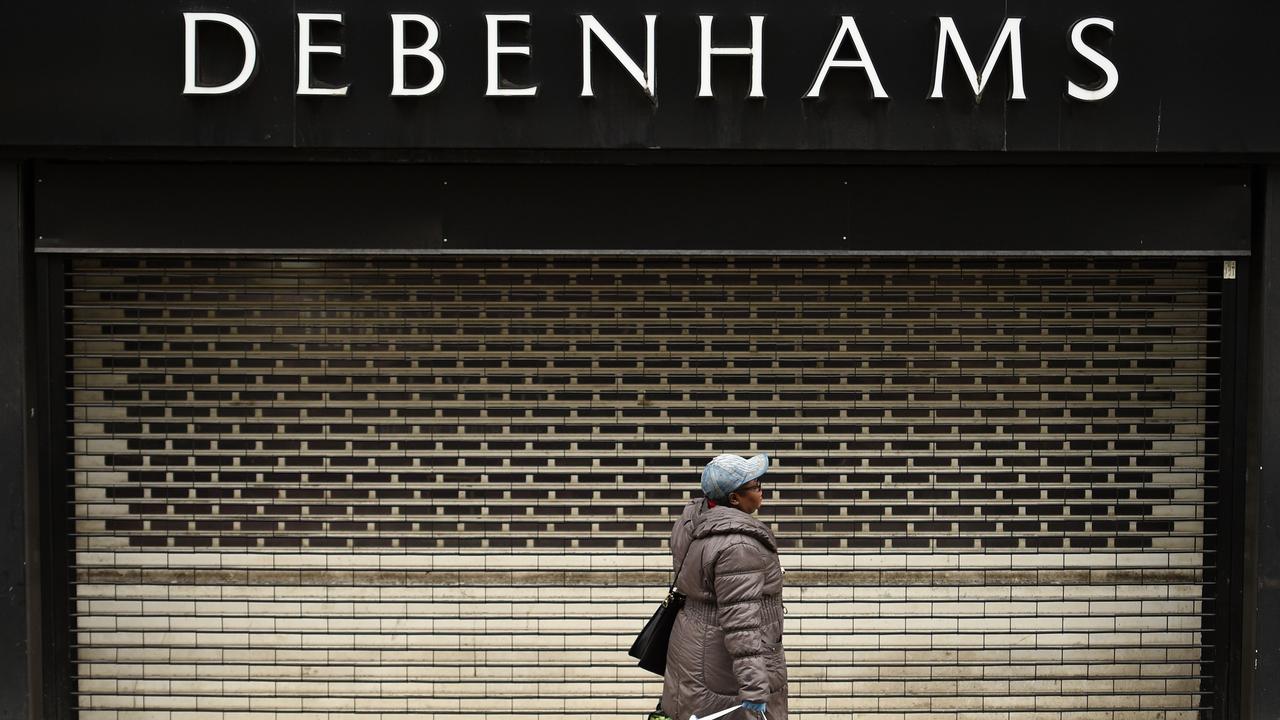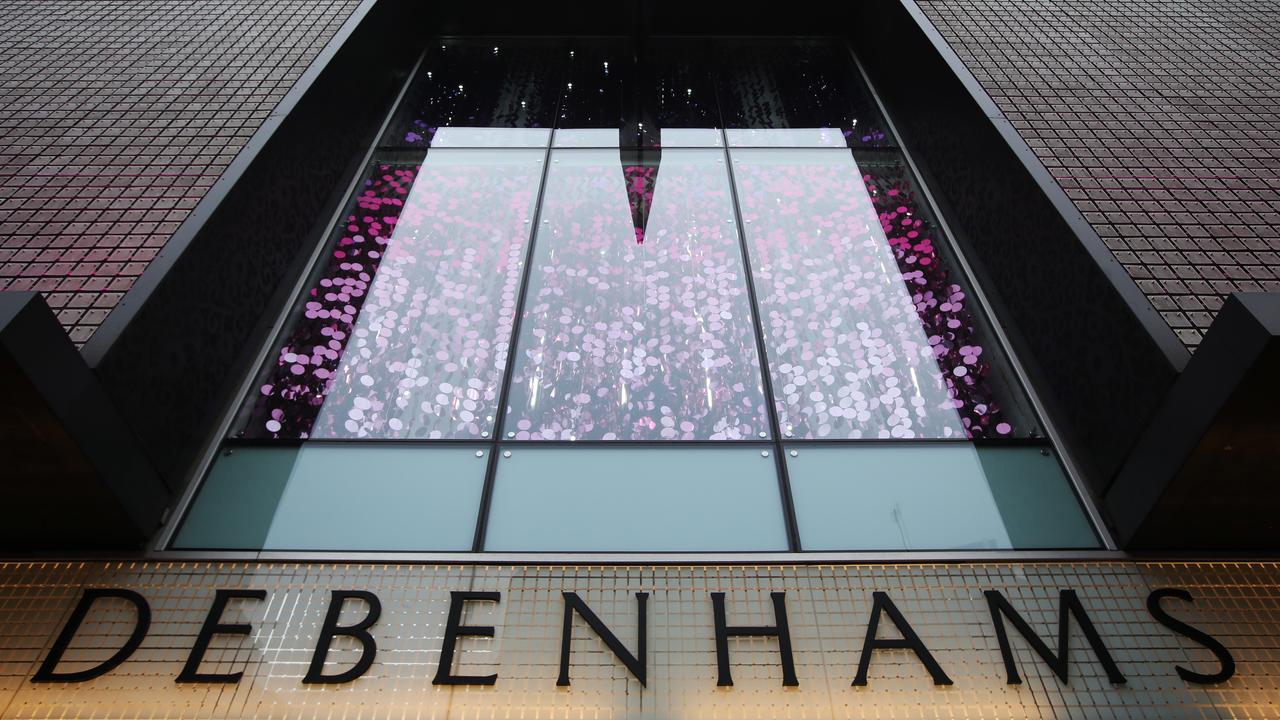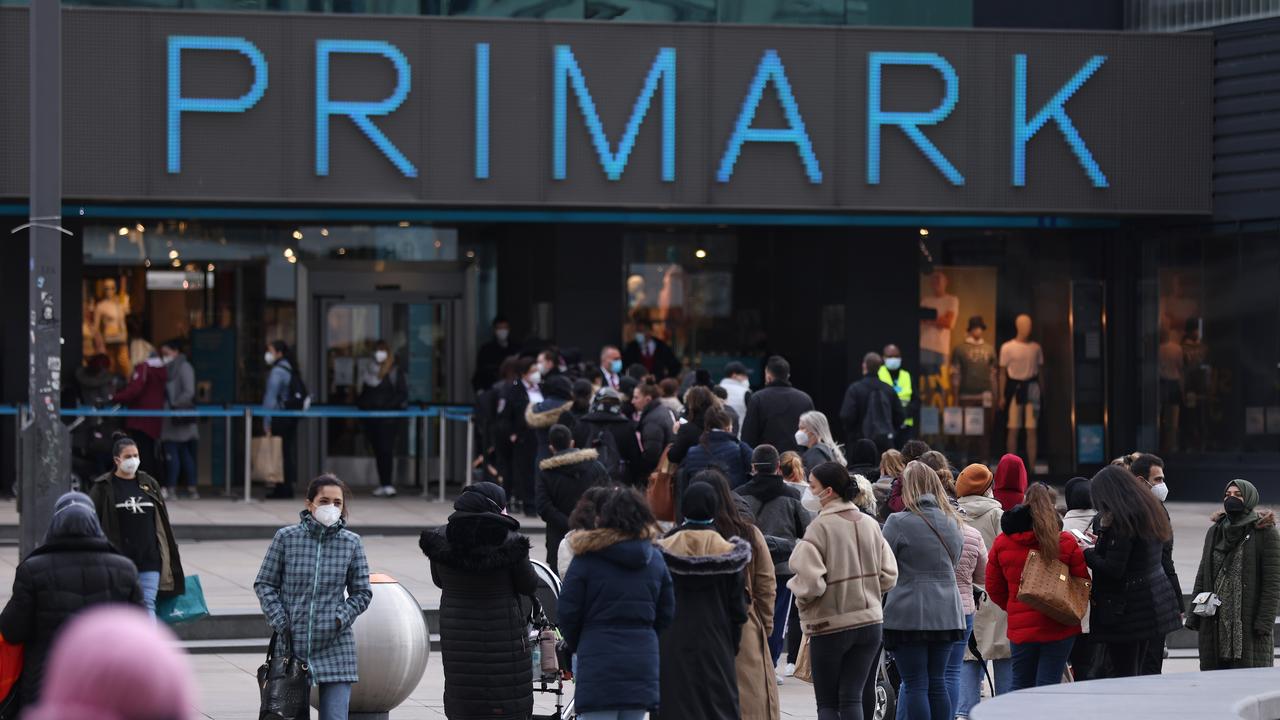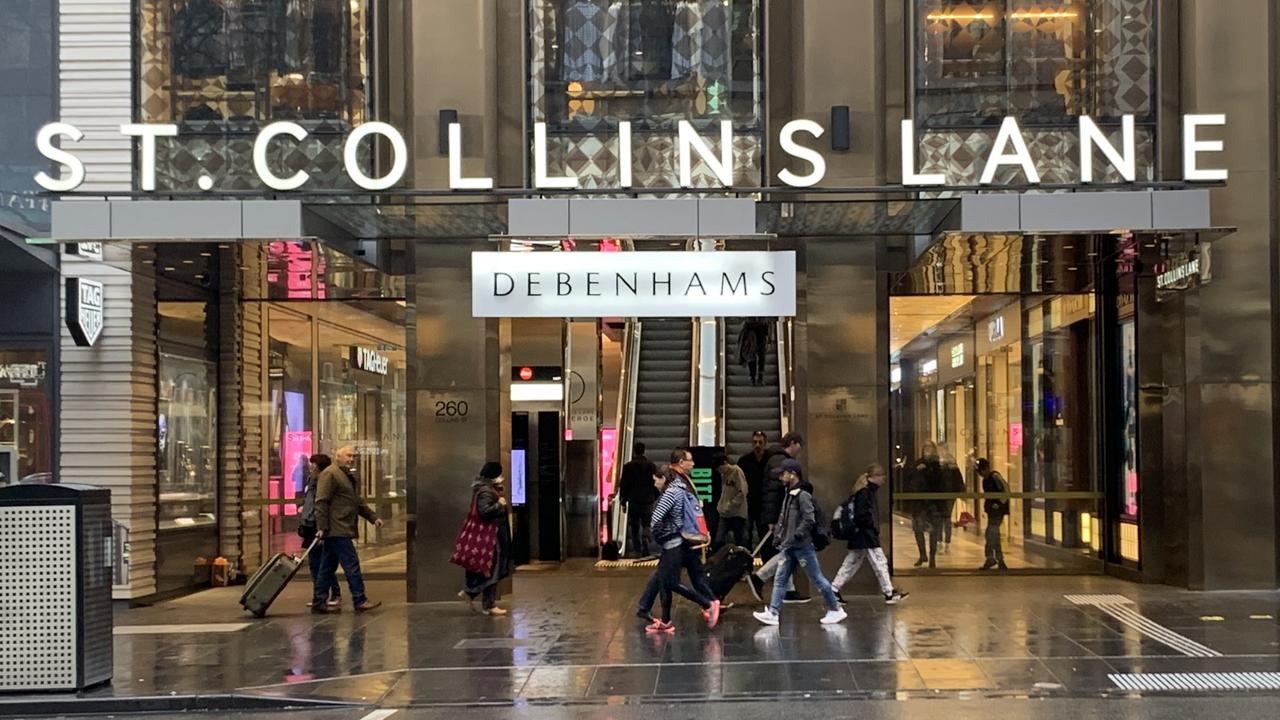‘Sad’ final hours of iconic British retailer Debenhams
It was a retail favourite for 200 years, but a series of catastrophic decisions led to a “slow, painful death”, with the final store closing days ago.
On Saturday, the queues snaked around the block to get into the Debenhams department store in the centre of Cardiff, south Wales.
But it wasn’t good news for the retailer – it was the last gasps of a “slow, painful death” of a British retail icon.
It was a scene repeated at every remaining Debenhams store across the UK on the weekend – from Belfast in Northern Ireland to Brighton on the south coast of England and from Liverpool to the flagship store on London’s Oxford Street.
By the time the shutters opened for Cardiff locals, there was precious little left to buy – a few bras knocked down to two pounds here, some sheet sets for single beds there.
Many of the floors had already been shut off as stock dwindled, mannequins forming a barrier to the escalator.
A newspaper in Devon labelled the Exeter branch a “ghost store” it was so bereft of stock.
When it closed that evening, Debenhams would not reopen again.

Management should ‘hang their heads in shame’
It’s estimated as many as 12,000 staff have been made redundant due to the closure of Debenhams’ final stores. On Saturday 29 closed, with 52 shutting permanently a week earlier. As recently as last year, it had 124 branches.
“It’s very sad, but it was on the cards for many years,” former Debenhams employee Lawrence Now told The Guardian.
“I believe every person from store manager above should hang their heads in shame. For years nothing was done, just collecting wages and not fighting the massive issues.”

COVID-19 final deal knell
It’s an ignominious end for a British retailer founded in 1788 that even had a short-lived stint in Melbourne.
Debenhams was to the UK what Myer is to Australia: dependable, venerable – and vulnerable to changing shopper habits.
In Debenhams’ heyday, customers would browse the racks of clothes and homewares, many diffusion lines from big-name designers. They would often stop for a coffee and cake in the department store cafe.
The final death knell of Debenhams was COVID-19. But the writing had been on the wall for years.
The issue was one that plagues department stores everywhere – staying relevant and on trend when a whole world of brands is just a walk or click away.
“Back in the 1990s they had Designers at Debenhams, where designers like Ted Baker or Jasper Conran would do in-house ranges for them. That was a good differentiator but they never moved on,” Maureen Hinton of retail consultancy GlobalData told the BBC.
“They also filled their stores with concessions that weren’t anything you couldn’t buy anywhere else on the High Street.”

‘Every time I ventured in, I wished I hadn’t’
Debenhams’ stores were numerous, big, bulky and came with the high rents which demanded high sales.
Many were old and difficult to maintain, often a series of adjoining shops which over time had been knocked together.
The company also made a series of disastrous financial decisions. It locked itself into long and costly multi-decade long leases and spent big on opening new stores just as customers were heading online.
It contrast, it failed to make its online offer as appetising as rivals such as ASOS and The Iconic.
The final Debenhams’ window display a trifle bleak pic.twitter.com/fjmvq94f9w
— Hush-Kit Aviation News, History & Satire (@Hush_Kit) May 16, 2021
Good luck to all the lovely people who worked @Debenhams in #Colchester.
— ColchesterViews. (@Colchesterviews) May 16, 2021
Goodbye 😢 pic.twitter.com/E6BRC3fmHu
This is what digital transformation looks like #debenhams#ripdebenhams#digitaltransformation#retail#retailers#retailtrendshttps://t.co/4W89Px24cdpic.twitter.com/OHsVvFxUAB
— Tim Hughes æ姆·休斯 (@Timothy_Hughes) May 15, 2021
#Exeter#Debenhams 15/05/21 😢 pic.twitter.com/RQG0u6GfXF
— DaveLovering (@d_lovering) May 15, 2021
In recent years the stores had begun to look scuffed and unloved both inside and out as corners were cut.
At the same time, cut price rival Primark, with smaller and more modern stores and no high end brands, was wowing Brits. As was H&M, Zara and homegrown fashion stores like Next.
Meanwhile, Debenhams was entering a death spiral.
“Every time I ventured in, I wished I hadn’t,” Ashley Mortimore from Brighton told The Guardian.
“They never seemed to have much for people like me and what they did have was pricey and not good value. It felt like stepping back a couple of decades.”
From 2019, it went in and out of insolvency as management desperately tried to shore up the business to little effect. It was paraded in front of multiple buyers, most of whom wanted little to do with the ailing chain.
Debenhams finally gave up for good in December, announcing every store would close during May 2021.

Stores almost empty on final day
All over the UK, shoppers took to social media to lament the passing of yet another British retail icon. Debenhams’ high street disappearance follows that of Mothercare, Evans and Topshop.
As the chain wound down to its final days, the stores looked increasingly bleak. Neon “everything must go” signs were plastered on the stores’ once elegant facades.
Makeup counters were lacking makeup, racks were empty, mannequins – their clothes all sold off – were piled in corners and thousands of clothes hangers were thrown into cardboard boxes.
Spotlights illuminated shelves, but there was no longer anything on them to buy.
“I am gutted, to be honest. It’s clothes I’ll really miss a lot,” local Wendy Gill told the Basingstoke Gazette in Hampshire.
“I am fearful for the future of shopping centres like this. I hope people will continue to support what is left, because otherwise it becomes a ghost town,” said Ruth Taylor.
“Sad to see this once giant of the high street close today. The end of the department store’s 200 plus year history in the UK,” said ITV News Anglia reporter Charlie Frost.

Australian branch of Debenhams didn’t last long
For a brief period, the Debenhams brand made it to Australia. The owner of Harris Scarfe hoped to roll out a clutch of Debenhams stores in major CBDs and shopping centres as a higher end fashion focused alternative to its main brand.
The one – and only – Australian Debenhams opened at the St Collins Lane development in Melbourne’s CBD in late 2017.
It offered Chanel and Clinique makeup, Jeff Banks fashions and Van Heusen shirts. But aside from its own brands there was nothing at Debenhams in Melbourne you couldn’t get at Myer just around the corner. It closed in January last year.

Retail consultant Brian Walker said Debenhams should never have set up shop in Australia.
“I was surprised they even came into the country in the first place,” he told the Herald Sun at the time.
“It was a little hard to find and it was relying on being a destination.”
But department stores were no longer destinations, he said.
“Those (retail) models have largely lost the very point of difference and focus they once had,” Mr Walker said.

Debenhams brand will live on online
The brand won’t vanish. Internet retailer Boohoo bought the name for a mere 55 million pounds (A$100m) in January. But it will exist purely online, a shadow of its former self.
Debenhams was often the biggest store in town in the most prominent position.
Its demise will leave a huge hole on already struggling UK high streets. There are simply too many shops right now and not enough retailers to fill them.
While some former stores will find new retailers, others won’t. The Gloucester branch, in England’s south west, will become a university teaching building.
End of an era for shopping in Belfast #Debenhamspic.twitter.com/U9g68ZxnlX
— GerryC76 (@GerryC76) May 16, 2021
Everything has gone - Debenhams, founded in 1813, closes its door for the last time nationwide today. Tremble ye mighty and despair! The retail rout will only continue - visiting Lakeside this morning felt like seeing the end of an era. pic.twitter.com/4dppMcDush
— Henry Dodds (@henrydodds) May 15, 2021
Debenhams RIP pic.twitter.com/S7KPA1nQax
— david sawyer (@david31121961) May 16, 2021
“It has been a slow, painful death (for Debenhams),” wrote Claire McNeilly in the Belfast Telegraph about the store in the city centre.
“Walking around the near-empty carcass of what used to be a heaving department store served as a bleak reminder of how quickly some mighty retailers have fallen in recent times.”
Australian department stores will be hoping that the same fate that befell Debenhams isn’t what their future has in store.




